A memorial Mass for Lydio Francesco Tomasi was celebrated by Fr. Walter Tonelotto and Reverend Thabang Nkadimeng at Holy Rosary Church on February 17, 2024. Francesco Isgro, President of CISC Italian American Museum of Washington DC gave the eulogy. Maria Marigliano and the Holy Rosary Church Choir provided the music.
In Memoriam: Fr. Lydio Francesco Tomasi, c.s. (1935–2024)
On February 1, 2024, at the age of 85, our community lost, a devoted priest who dedicated his life to serving God and A scholar WHO, dedicated his life to pursue just and fair immigration policies.
Born in 1935 , in Casoni di Mussolente, a village not far from Bassano del Grappa, Fr. Lydio entered the Missionaries of Saint Charles-Scalabrinians in 1957 and was ordained to the priesthood in 1962. The following year the Scalabrinian order sent him to the United States.
From there his mission became tied to that of his younger brother, now Cardinal Silvano Maria Tomasi, who in 1964 founded the Center for Migration Studies (CMS) in Staten Island New York. After serving as instructor of Systematic Philosophy and History at St Charles Seminary on Staten Island and as Parochial Vicar at the Church of St Michael in New Haven Connecticut, Fr. Lydio became the Executive Director of CMS in 1968 and he remained there until 2001.
During his tenure at CMS, he founded Migration World magazine a journal for professionals working with migrants, providing a platform for sharing insights and experiences. He was also managing editor and later editor-in-chief, of International Migration Review, transforming it into the premier scholarly journal on international migration. He expanded the library and archives, documenting among other topics, the experiences of migrants on Ellis Island. During this time Fr. Lydio earned a doctorate of Sociology from New York University and began publishing books, and articles mostly on Italian American topics.
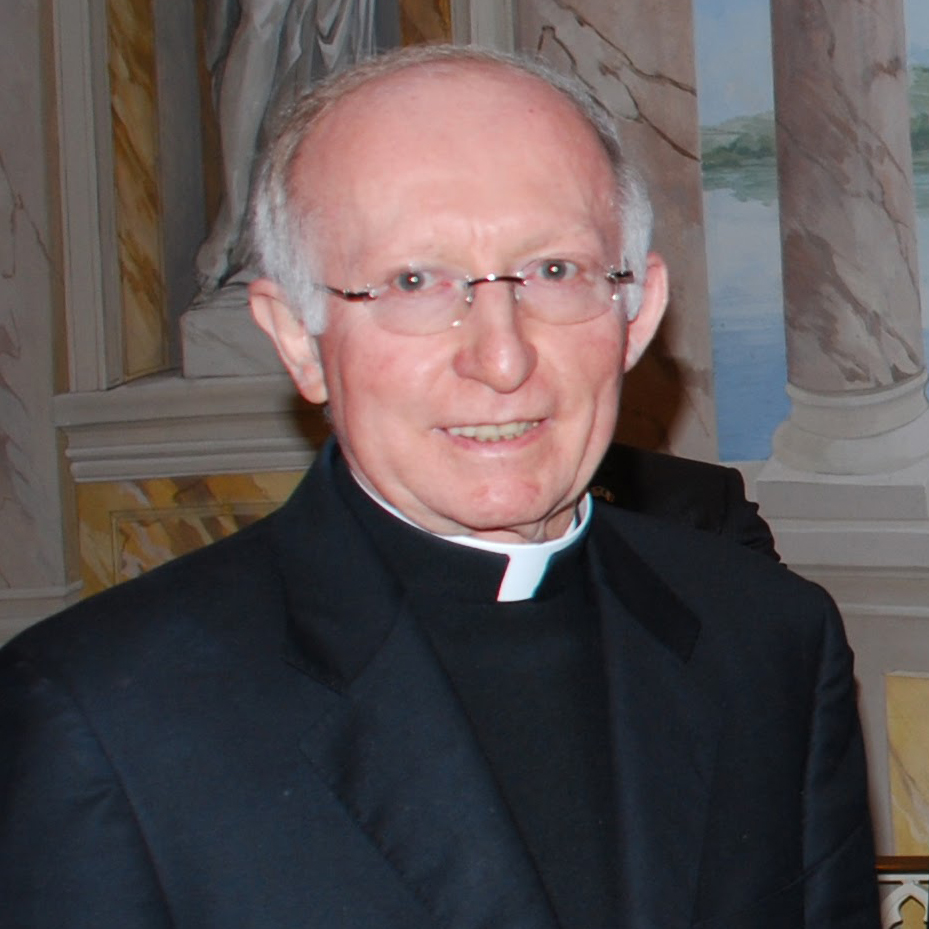
But his greatest legacy was the establishment of an immigration Annual Conference in Washington, D.C. This gathering brought together experts, policymakers, legislators, advocates, and government actors to address critical issues on U.S. immigration law and policies. The proceedings of those conferences were collected and edited by him and published in books entitled “In Defense of the Alien.” He held 22 conferences, and 22 volumes were published. They constitute a remarkable history of how the protagonists sought to address the immigration issue of the day. I believe he wrote or edited more than 70 books, articles on immigration and Italian Americans.
As his successor Donal Kerwin would later write, in its early years there were no other agencies, think thanks like CMs, devoted to the academic, legal policy, theological and humanitarian issue raised by the international movement of people.” Under his leadership, CMS flourished, becoming a hub for scholarly research, policy analysis, and advocacy. In 2014, CMS established the Fr. Lydio F. Tomasi, C.S., Annual Lecture on International Migration. Each year, a leading theologian or faith leader delivers a lecture on a migration-related topic, underscoring the intersection of faith and compassion.
Fr. Lydio brought the same energy and vision when he was assigned to Holy Rosary Church in 2006, after serving four years as pastor of the Church of St. Joseph in lower Manhattan.
As soon as he arrived, he engaged the community in fundraising efforts to renovate the interior of the church and in less than a year he raised ½ million dollars. On the Church Feast Day in 2007, then- Cardinal Wuerl rededicated the restored Holy Rosary Church. The next year, he led the celebration of the church’s 95th anniversary. He also began the practice of awarding “Blesssed Scalabrini Medals” to members of Holy Rosary for their service to the community.
He strengthened the Casa Italiana Language School, established conferences and seminars, including one on the Monongah mine disaster, on Italian-Americans in the Washington area, and he transformed Voce Italiana newspaper from a cut-and-paste publication to the digital age, and expanded its scope to include” all the voices within the Italian American community of Washington area,” as he would write in his first editorial. He expanded the Festa Italiana, the Italian street festival. Indeed, during his tenure, Casa Italiana hall became a hub of cultural activities.
Fr. Lydio would often use his lunch hour, to share bread with invited guests and discuss policy issue on varied topics, and most importantly to connect with the Italian American community in Washington DC. The food was always great, as his personal chef was Lucia Portanova’s mother.
His tenure at Holy Rosary coincided with two historical events. First the celebration of the Church centennial which he led by bringing together a committee of donors and eventually assigning the task of fundraising and coordinating the event to a volunteer assistant. Indeed 2013 became a year of cultural activities and celebrations.
Second, he learned of plans to cover Route 395 to develop a project to build a series of mixed-use buildings, known as the Capital Crossing Project. He established a church committee and worked with the archdiocese to defend the rights of Holy Rosary. By 2013, Fr. Lydio ‘s Parkinson Disease had advanced, and he was reassigned to reside in New York and continue to assist at his beloved Center for Migration Studies. In 2016 he was reassigned to the Scalabrinian Saint Raphael residence in Italy, where he would remain until his passing. He never saw the completion of the new building, now named after Saint Scalabrini, nor the Italian American Museum. Given his passion for Italian American history, I’m sure he would have been enthusiastic and very pleased.
On a personal note, I first met Fr. Lydio shortly after the enactment of the 1986 amnesty program. At the time, I was working at the Immigration and Naturalization Service, where I was the lead attorney on the amnesty program. Fr. Lydio asked to be the legal contributor to Migration World magazine, and I accepted. He later asked my wife, Anna, a writer and editor, to volunteer as assistant editor of the journal. He was also able to convince Anna to be the volunteer Washington coordinator of his immigration conference. Fr. Lydio had a special art for getting people engaged and assisting in his projects. When he made me Managing Editor of Voce Italiana in 2007, he knew that Anna would actually be editing most of the paper.
As we bid farewell to this remarkable soul, let us honor Fr. Lydio’s memory by continuing the work he began—to build a world where compassion knows no borders and where every migrant finds refuge and dignity.
Fr. Lydio Tomasi left a lasting legacy of service to the Scalabrinian Order and to the Italian American community. He will be dearly missed, and never forgotten.
We thank God for the gift of his life, and we pray that he may rest in peace. Amen.
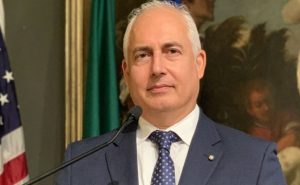

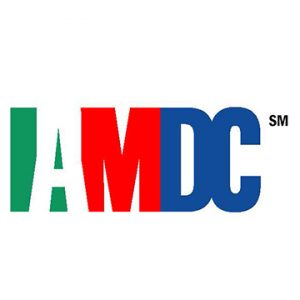

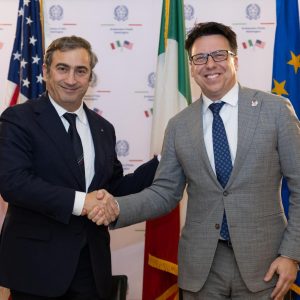
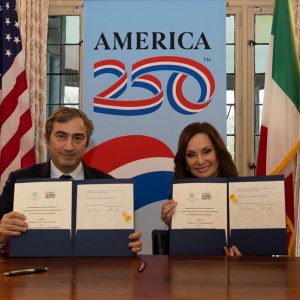
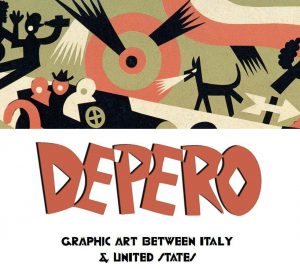
Can you be more specific about the content of your article? After reading it, I still have some doubts. Hope you can help me.